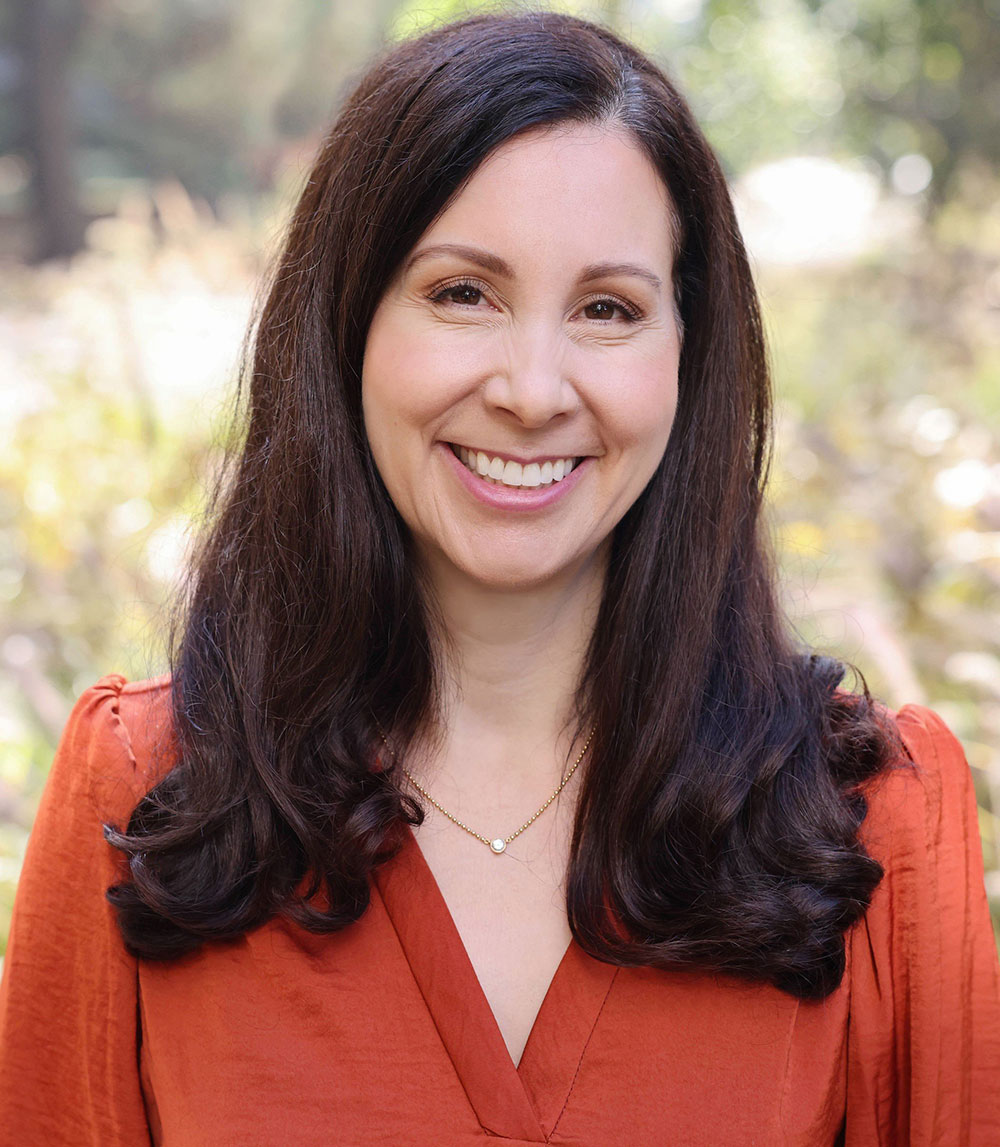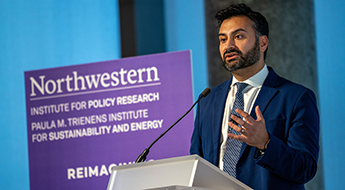Faculty Spotlight: Lauren Rivera
An IPR associate studies gatekeeping at elite institutions, questioning society’s definition of merit
Get all our news
I think it's a good example of how little tweaks to the things—the metrics or measures or protocols—we use to evaluate suitability or quality can make a difference.”
Lauren Rivera
IPR sociologist

In junior high, Lauren Rivera started attending an elite prep school in Los Angeles where her mother worked. Rivera, who grew up in a low-income family, was extremely aware of the lifestyles of her peers—some were the children of celebrities or celebrities themselves—and their great wealth.
“Fred Savage was a few grades above me, and my brother was in a band with Adam Levine from Maroon 5,” Rivera said. “Being there was such an eye-opening experience.”
Rivera would finish high school at the same elite school and eventually learn to blend in, but the social differences she saw between her and her rich classmates stayed with her.
When she moved to Connecticut to attend Yale University, she noticed the change in elite culture. LA, dominated by Hollywood’s flashy film industry, contrasted sharply with New Haven’s privileged undergraduates. Many of her classmates were born into generational wealth and focused on highbrow intellectual pursuits like reading literary novels and discussing the latest New Yorker articles.
Not understanding the rules of elite culture, or how it operates, and the extreme wealth she saw across her education led Rivera to ask questions about social inequality in a research assistant position at Yale.
“After that experience, I just fell in love with research,” she said.
Rivera, now the Peter G. Peterson Professor of Corporate Ethics, Professor of Management & Organizations, and an IPR associate, would go on to get a PhD in sociology from Harvard University. Her research explores how people’s definitions and evaluations of merit shape social inequality, focusing on who elite institutions let in and keep out.
What Does Merit Mean?
After graduating from college, Rivera worked as a management consultant in London for two years before going into academia. This experience gave her access to the exclusive consulting firms, investment banks, and law firms that would eventually become the subject of her award-winning book Pedigree: How Elite Students Get Elite Jobs (Princeton University Press, 2015). Using in-depth interviews and observations of hiring practices, she shows that hiring managers in these sectors favor candidates from privileged backgrounds for entry-level jobs over other applicants.
A major takeaway from Rivera’s research is whether someone fits socially and culturally with a company’s employees often matters more in getting hired than their job-relevant knowledge, skills, or experiences. In elite firms, a degree from a prestigious university, leisure activities, and whether interviewers simply like a candidate influence who gets the job. For this reason, Rivera views merit as a subjective term that can perpetuate inequality.
“In Pedigree, I talk about 'looking-glass merit,' the idea that we define it in our own image,” Rivera said. “The way we evaluate merit is conditioned by our own social experiences and societal stereotypes. So when we think about merit, it is not something that exists in a vacuum or can be objectively measured. It's really a moving target.”
Rivera’s research also examines how definitions of merit shape social inequalities long before students enter the job market. Her recent research looks at gatekeeping and inequality in the U.S. educational system.
One study analyzes how elite private schools, many feeding students into Ivy League universities, select students for their early childhood programs. She finds that, just like elite employers, schools based admission and rejection decisions on merit. But the way elite schools defined and evaluated merit—by tracking children’s progress meeting developmental milestones—excluded students if they had a disability.
Rivera says these findings have important implications for public debates about school choice, given that private schools are subject to less legal oversight surrounding disability discrimination. However, another of Rivera’s studies also demonstrates widespread discrimination against students with disabilities in public schools, which she wrote about in the Chicago Tribune.
“While definitions of merit historically perpetuate privileges for dominant groups and society, merit-based admissions in education and employment have especially troublesome implications for disability inclusion,” she said. “When we sort on ability, we are, by definition, excluding people who don't conform to cultural standards of ability, such as individuals who have disabilities or who are neurodivergent.”
How Small Tweaks Can Change Beliefs About Merit
If our ideas about merit are skewed, can interventions make a difference in how we think about who is qualified for a job or deserves a promotion?
“I started getting interested in interventions because honestly, it can be demoralizing to study the reproduction of inequalities,” Rivera said.
Her work shows that changing student evaluations of professors, which are often biased against women, from a 10-point to a 6-point scale reduced the gender gap in faculty evaluations of male-dominated fields. The 6-point scale helped evaluators focus on the quality of the work and less on whether the person being rated met their idea of a superstar.
“I think it's a good example of how little tweaks to the things—the metrics or measures or protocols—we use to evaluate suitability or quality can make a difference,” Rivera said.
In other research, she finds that the stories we tell about how external events affect our job performance matter in evaluations—and disproportionately affect women. When applying for tenure, faculty received better evaluations when they included a COVID-19 impact statement, which gave context to career disruptions caused by caregiving or lab closures during the pandemic.
“One reason I think that focus is promising is that, as we've seen over the past few months, there is incredible pushback to attempts to make major changes to organizations, especially when it comes to making them fairer on the basis of any kind of social identity,” Rivera said.
These kinds of small interventions, which Rivera says usually aren’t controversial because they focus on changing evaluations rather than on people’s identities, can nudge people to evaluate others more equally. In the current political moment, she sees her work as critical evidence that adds nuance to the way we assess others in and outside of elite institutions.
“I think my research provides a unique opportunity to question and interrogate, ‘What do we mean by merit?’” Rivera said.
Lauren Rivera is the Peter G. Peterson Professor of Corporate Ethics, professor of management & organizations and of sociology (by courtesy), and an IPR associate.
Published: May 15, 2025.


